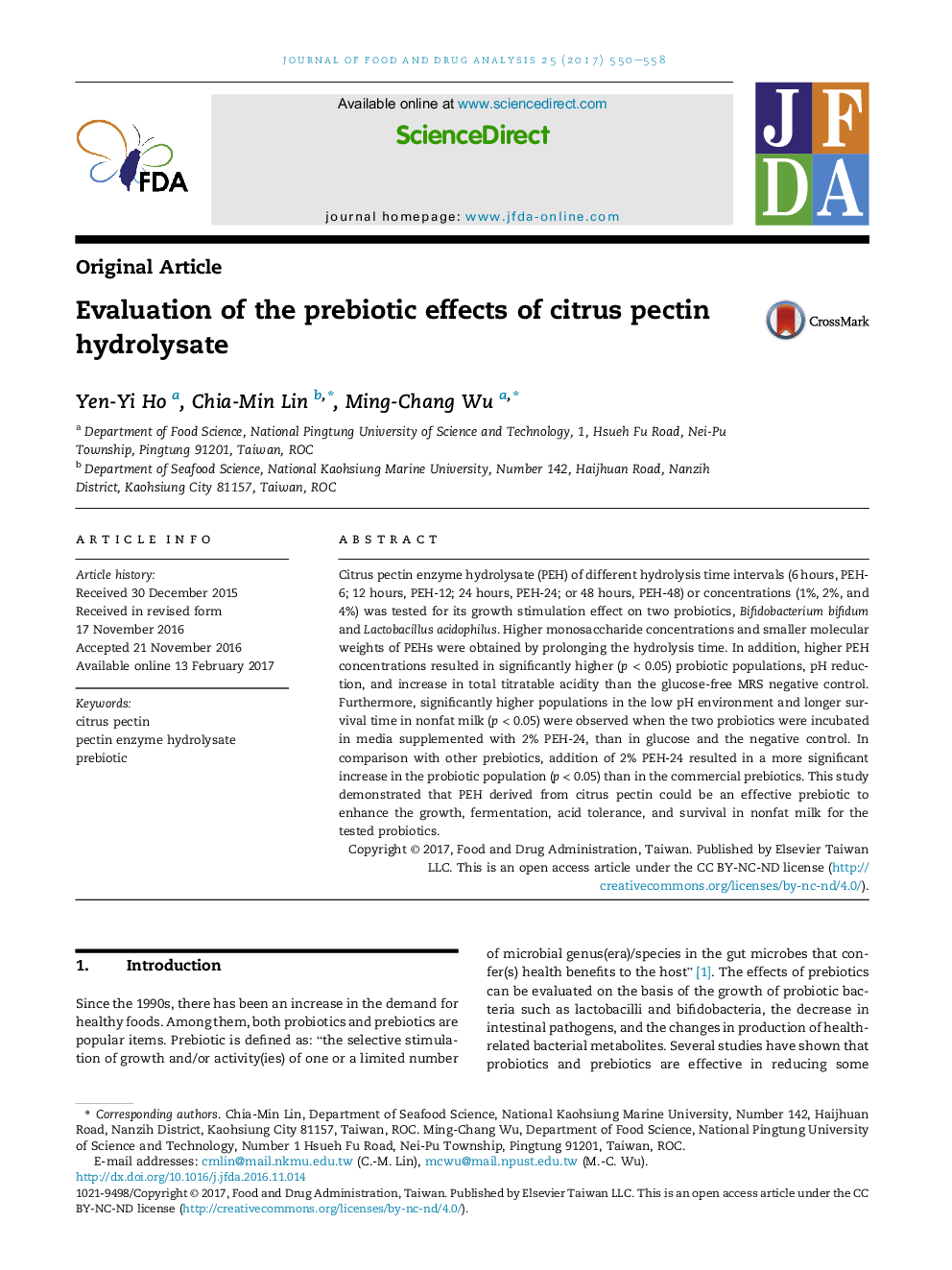| Article ID | Journal | Published Year | Pages | File Type |
|---|---|---|---|---|
| 5551039 | Journal of Food and Drug Analysis | 2017 | 9 Pages |
Citrus pectin enzyme hydrolysate (PEH) of different hydrolysis time intervals (6 hours, PEH-6; 12 hours, PEH-12; 24 hours, PEH-24; or 48 hours, PEH-48) or concentrations (1%, 2%, and 4%) was tested for its growth stimulation effect on two probiotics, Bifidobacterium bifidum and Lactobacillus acidophilus. Higher monosaccharide concentrations and smaller molecular weights of PEHs were obtained by prolonging the hydrolysis time. In addition, higher PEH concentrations resulted in significantly higher (p < 0.05) probiotic populations, pH reduction, and increase in total titratable acidity than the glucose-free MRS negative control. Furthermore, significantly higher populations in the low pH environment and longer survival time in nonfat milk (p < 0.05) were observed when the two probiotics were incubated in media supplemented with 2% PEH-24, than in glucose and the negative control. In comparison with other prebiotics, addition of 2% PEH-24 resulted in a more significant increase in the probiotic population (p < 0.05) than in the commercial prebiotics. This study demonstrated that PEH derived from citrus pectin could be an effective prebiotic to enhance the growth, fermentation, acid tolerance, and survival in nonfat milk for the tested probiotics.
Graphical abstractDownload high-res image (314KB)Download full-size image
